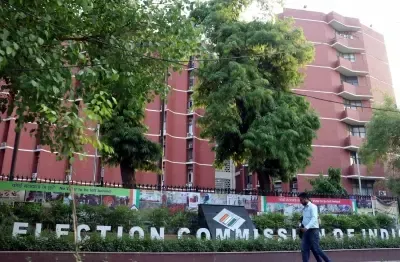Is Pakistan Targeting Systems Amid Regional Crises? Indian Agencies Detect a 'DeskRAT'

Synopsis
Key Takeaways
- DeskRAT is a dangerous spyware targeting Indian systems.
- Hackers exploit regional unrest to launch their attacks.
- Detection of DeskRAT is challenging due to its stealthy operation.
- Intelligence agencies are on high alert due to increasing cyber threats.
- Urgent action is required to enhance cybersecurity measures.
New Delhi, Nov 8 (NationPress) As we approach the year 2025, following a significant meeting in the national capital, Indian Intelligence agencies have indicated that cybercrime will emerge as a primary concern for New Delhi's security. While cybercrime has perpetually posed a risk to national security, agencies have recently uncovered the presence of a DeskRAT and are observing a disturbing trend.
Hackers from Pakistan, China, and various other nations have intensified their operations, targeting both financial institutions and military establishments. This is part of a psychological operation launched by Pakistan, aiming to undermine the military and inflict damage on the Indian economy.
The Indian agencies have noted a significant shift in the tactics employed by these cybercriminals.
This change became evident during the protests in Sri Lanka. When a neighboring country faces turmoil, security agencies naturally heighten their alertness. The stress experienced by these agencies at such times is what hackers exploit. They know that some officers may inadvertently open emails marked as 'urgent'.
These 'urgent' emails often contain files that, once accessed, can seize control of the system. When these attachments are opened, hackers can extract operational documents and strategic plans. In some instances, this spyware can linger undetected in the system for weeks, granting hackers complete access until it is discovered.
A similar modus operandi was observed during the protests in Bangladesh and Nepal. Investigations have shown that these operations utilize a spyware known as DeskRAT. Furthermore, recent incidents have been traced back to a Pakistan-based group called Transparent Tribe.
This spyware is specifically engineered to target Boss Linux systems, which are prevalent in Indian government offices. Additionally, the spyware operates stealthily, making detection exceedingly difficult. Until it is identified, it can browse through government documents, extract sensitive information, and monitor activities.
Even following the Pahalgam terror attack, this group remained highly active, disseminating emotionally charged emails and messages to government officials. Many opened these attachments, allowing the hacking group access to their systems.
Multiple agencies are working diligently to combat this latest spyware threat. An official noted that the most dangerous aspect of DeskRAT is its design; it does not aim to crash systems but rather to monitor them. This characteristic complicates detection, allowing the spyware to remain in the system for extended periods. This suggests that the hackers are focused on long-term espionage rather than immediate disruption.
Intelligence officials have labeled DeskRAT as one of the most dangerous spywares introduced into Indian systems in recent memory. Its sophistication poses significant challenges for detection. It operates without revealing its presence, collecting information and disrupting communication channels within military and governmental bodies.
This group becomes active during times of unrest in India's vicinity or within the country. There is immense pressure to prevent such violence from spilling over into India. This period is when hackers strike, capitalizing on the anxiety within the system. Transparent Tribe deployed DeskRAT in Indian systems during the recent protests in Ladakh as well.










